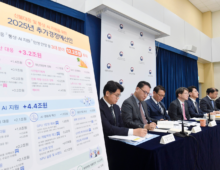As birth rates plummet, the implications for education, health and politics grow dire
South Korea’s total fertility rate has dropped to a new record low of 0.65 in the fourth quarter of 2023, according to Statistics Korea, exacerbating the country’s demographic challenges amid rapid aging and declining birthrates. This quarterly figure, down from the previous year’s average of 0.72, underscores a persistent downward trend from 1.24 in 2015, marking the lowest rate among OECD nations.
The decline is attributed to reduced marriages during the COVID-19 pandemic, alongside socio-economic pressures such as high housing costs and a tough job market.
South Korea’s total fertility rate has dropped to a new record low of 0.65 in the fourth quarter of 2023, according to Statistics Korea, exacerbating the country’s demographic challenges amid rapid aging and declining birthrates. This quarterly figure, down from the previous year’s average of 0.72, underscores a persistent downward trend from 1.24 in 2015, marking the lowest rate among OECD nations.
The decline is attributed to reduced marriages during the COVID-19 pandemic, alongside socio-economic pressures such as high housing costs and a tough job market.
Get your
KoreaPro
subscription today!
Unlock article access by becoming a KOREA PRO member today!
Unlock your access
to all our features.
Standard Annual plan includes:
-
Receive full archive access, full suite of newsletter products
-
Month in Review via email and the KOREA PRO website
-
Exclusive invites and priority access to member events
-
One year of access to NK News and NK News podcast
There are three plans available:
Lite, Standard and
Premium.
Explore which would be
the best one for you.
Explore membership options
© Korea Risk Group. All rights reserved.
No part of this content may be reproduced, distributed, or used for
commercial purposes without prior written permission from Korea Risk
Group.












